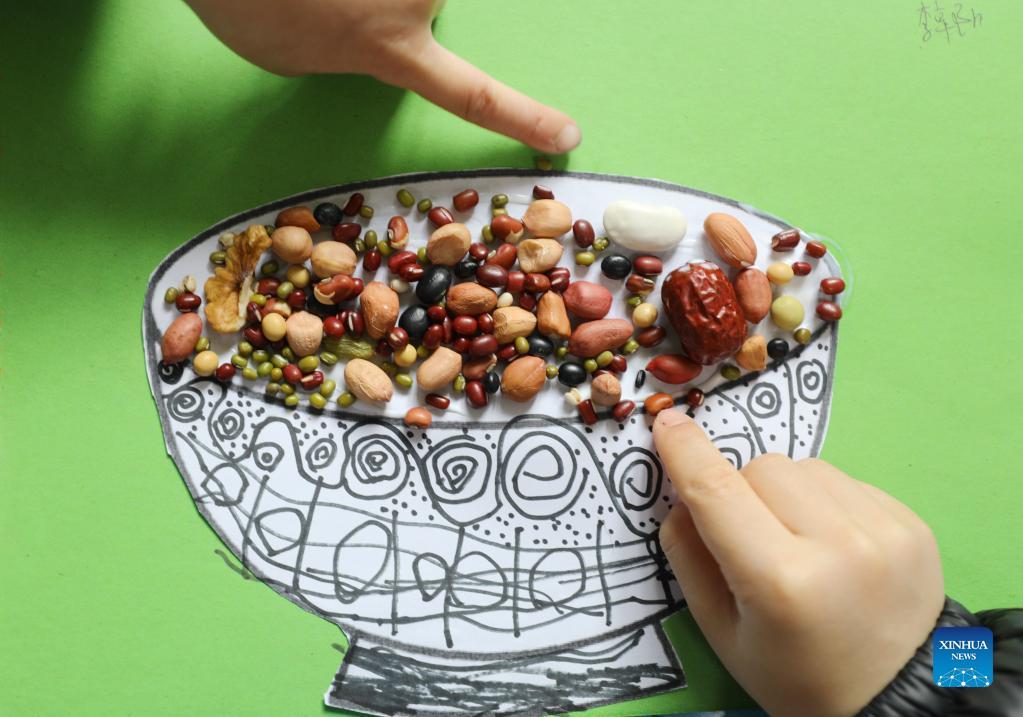
 0 Comment(s)
0 Comment(s) Print
Print E-mail CGTN, January 12, 2024
E-mail CGTN, January 12, 2024

A kid creates a painting with ingredients of Laba porridge in Hefei City, east China's Anhui Province, Jan. 10, 2022. The Laba Festival, literally the eighth day of the 12th lunar month, is considered a prelude to the Spring Festival, or Chinese Lunar New Year. It is customary to eat Laba porridge on this day. [Photo by Chen Sanhu/Xinhua]
Layue, the twelfth month of the traditional Chinese calendar, officially commences on Thursday. The Chinese character "La" holds historical significance, appearing in ancient texts such as Book of Changes and Rites of Zhou. Originally, "La" meant "cured meat."
Layue is also renowned as the month with the richest traditional customs of the twelve months of the year.
The eighth day of Layue marks the Laba Festival, popular in northern China. The custom on this day is to savor Laba porridge, which is also known as "Seven Treasures Five Flavors Porridge" or "Buddha Porridge." It is a delightful concoction of grains, peanuts, chestnuts, red dates, lotus seeds, and other ingredients – all of which combine to make it a staple of the Laba Festival.
In the northern part of China, there is a saying, "Children, don't be too eager, right after Laba, the new year is on its way." Celebrating Laba signifies the commencement of the Chinese New Year.
In some southern regions of the country, there is a custom of consuming glutinous rice during the cold winter months. Some areas also have traditions of making New Year rice cakes and sticky rice cakes crafted from steamed and mashed glutinous rice.
Believed to have higher sugar content than regular rice, glutinous rice is thought to bring warmth to the body, helping to dispel the cold. In traditional Chinese medicine, glutinous rice enhances vital energy, making it particularly suitable for consumption during winter.
The Kitchen God Festival is a widespread custom observed across the country. On this day, people would hang images of the Kitchen God and his wife around the kitchen stove, accompanied by couplets. Today, many rural areas still uphold this tradition.
Layue is regarded as a preparatory phase for the upcoming Spring Festival. If the Spring Festival is considered the most joyful celebration of the year, many would agree that the joy, bustle and anticipation of Layue are no less significant than the main event.
Go to Forum >>0 Comment(s)